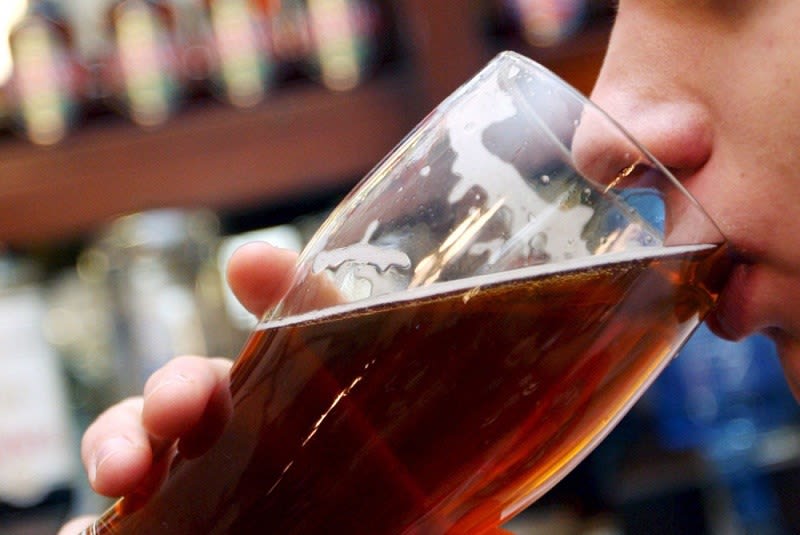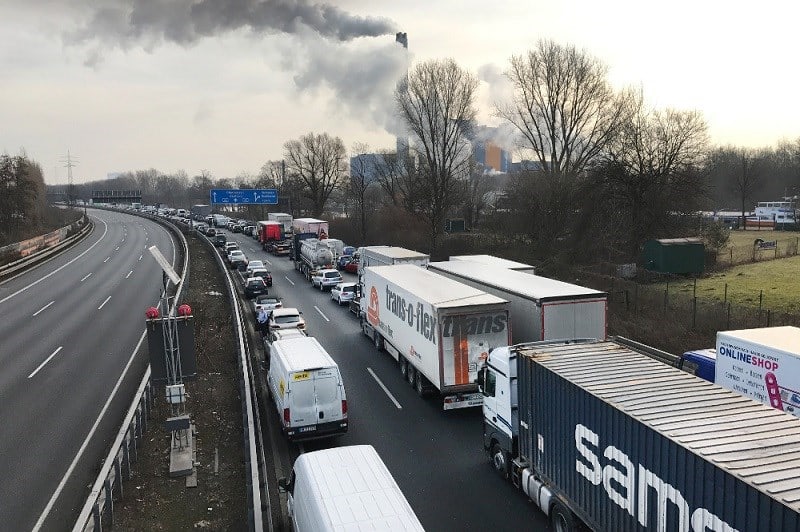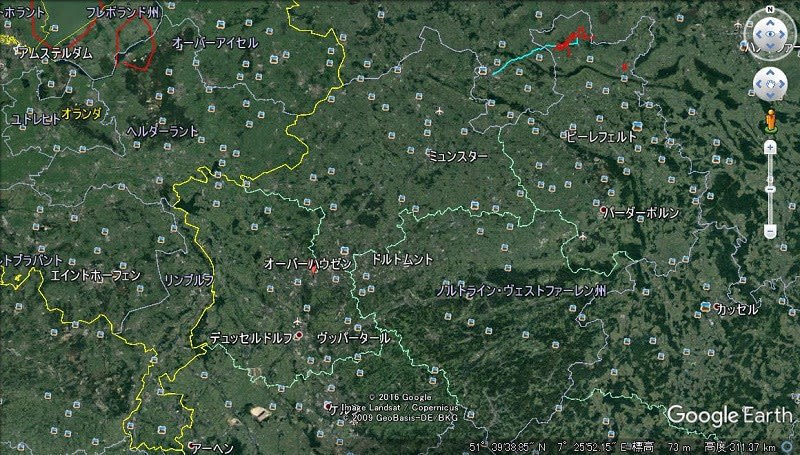2017年2月17日(Fri.) エッと思うような見出しでした。そんなことないでしょう・・・と。 でも読んで行くと納得しました。 ( ニュースソース: THE LOCAL de 2月15日発 )
<原文の一部>
Why Germans are losing their taste for beer 15 February 2017 15:50 CET+01:00
ドイツ人は何故ビールへの味覚を失いつつあるのか

Photo: DPA/EPA
The amount of beer Germans drink annually has plummeted by roughly a third since the 1970s. So why are Germans seemingly turning up their noses at their traditional beverage?
ドイツ人の年間ビール消費量は、大まかに見て1970年代に比べて3分の1ほど急落してきています。 一体、彼らにとっての伝統的な飲み物に対するドイツ人の嗅覚は何故変わってきているのでしょうか。
Last week the Bavarian Brewers’ Association reported a small drop in sales, down by 1.1 percent between 2016 and 2015. And while this decline is a small one, it represents a larger decrease over time in Germans’ consumption of beer.
In the mid-1970s, Germans each drank on average about 150 litres of beer per year. By 1991, that number had already fallen to 141.9 litres per person, according to the Ministry of Food and Agriculture, and by 2015 this decreased to 105.9 litres - about two-thirds of what it was in the 1970s.
“For years this number has slowly been going down,” Walter König of the Bavarian Brewers’ Association explained to The Local.
(抜粋)先週、バイエルン醸造組合が販売額が僅かに落ちたことを発表しました。 2015年から2016年にかけて1.1%の下降でした。 しかし、この減少は小さなものではありますが、ドイツにおけるビール消費量はもっと大きい減少であることを物語っているのです。 1970年代の中盤、ドイツ人の一人当たり年間消費量は約150リットルでした。 そして、1991年までに、141.9リットルまで減少しています。 そしてさらに2015年には、105.9リットルまで下がりました。 1970年代に比べておよそ3分の2になっています。 何年間にもわたって微減してきていると、同醸造組合の König は言います。
But how can Germans be forsaking the brew that is their pride and joy?
“One reason is the higher amount of mobility that we have today,” König continued. “Before, people didn’t have to drive cars so much, they were closer to their work. We also have less work in agriculture or physical work. There’s more mental work.”
König explained that because people have to drive to work and also now have stricter office regulations against drinking while on lunch break, Germans are not sinking as many beers during the week.
(抜粋)しかし、ドイツ人はどのようにしてビールをやめてきたのでしょうか? 一つには車社会の影響だと König は続けます。 人々がそれほど車の運転をすることがなかった頃は、近場での仕事でした。 また、農業や肉体労働的なものは減少し、より知的な仕事になってきています。 そして、人々は仕事上、車の運転することになり、職場規律の厳しさからランチ休憩などにおいても飲酒は抑える傾向になり、週の中でのビールを飲む機会も減ってきました。
Another reason is the public’s changed perspective on beer.
“In people’s minds, beer is not healthy. Consuming anything that seems unhealthy has decreased… There is more health awareness, though with a false understanding - beer in moderation is healthy.”
And König has a point - at the same time that consumption of beer decreased between 1991 and 2015, water consumption nearly doubled, from 79 litres per person to about 152 litres per person, according to the Food Ministry. Wine drinking has stayed about the same at 20.5 litres per person in 2015.
(抜粋)他の理由として、ビールに対する観点が変わってきています。 人々の気持ちの上で、ビールは健康上好ましくないもの。 健康上好ましくないと思われるものの消費はなんでも減少しています。 健康への意識が高まっているのです。 ー 誤った理解があっても - ビールを控えめにすることが健康・・・と。 そして、 König は指摘します。 1991年から2015年の間のビール消費減少と同じくして、水の消費が倍増していて、一人当たり79リットルから約152リットルになっています。 ちなみに、ワインに関しては、ほぼ変動はなくて2015年で一人当たり20.5リットルになっています。
This awareness has also been reflected in bans on drinking in public, König said, like a recently enacted ban on nighttime drinking at Munich’s main train station.
But another aspect not reflected in the statistics is that more Germans are drinking alcohol-free beer - for similar reasons of health and concerns about drunk driving.
(抜粋)この意識は公共の場での飲酒が禁止された影響もあると言います。 たとえば、最近のミュンヘンの主要鉄道駅における夜間飲酒の禁止措置などです。 またその他の側面として、健康上の理由や飲酒運転問題に絡んで、ノンアルコール・ビールの伸張があります。
The nationwide German Brewers’ Association wrote in their annual report for 2016 that there are now about 400 different brands of alcohol-free beer - 50 more than the previous year. And every 20th litre of beer brewed in Germany is alcohol-free.
“More and more athletes are grabbing for alcohol-free beer,” the report states.
(抜粋)ドイツの全国組織の醸造組合によると、2016年で、およそ400のノンアルコール・ビール・ブランドがあります。 これは前年より50も増えています。 また、醸造ビールのおよそ5%はノンアルコールになっています。
König said there had been a similar drop in beer consumption among Germans in the past, but for reasons very different and not so comparable to today. This happened after the Second World War when people didn’t have enough money to afford a recreational drink.
But once the economy picked up in what’s known as the Wirtschaftswunder (economic miracle) in West Germany, people were drinking more again up to the 1970s.
“Drinking beer was a status symbol, and that’s not comparable to today. People can now afford it.”
(抜粋) König によると、過去、同じようなビール消費の減少があったと言います。 しかし理由は全く異なっていて、今日のそれとは比較できません。 それは第二次世界大戦(注: ドイツ敗戦)後のことで、人々は飲酒を楽しむことができるようなお金は持ち合わせていなかったのです。 しかし、西ドイツにおける奇跡的な経済復興によって、1970年代のそれに向って再び飲み始めていったのでした。 ビールを飲むことは一つのステータス・シンボルでした。今日のそれとは比較できるものではありませんが、今や人々は十分の稼ぎがあるのです・・・と。
Does beer have a future in Germany?
For König, it goes without saying that it does, but he doesn’t see demand significantly increasing in the future.
Part of this is because of demographic changes. Germany’s death rate has outstripped its birth rate for years, and even with immigration, experts have predicted a population decrease of as much as 10 million people by 2060.
König said that low birth rates and high death rates mean that once those born today are old enough to sip alcohol, there will already be fewer of them compared to previous years, and thus the amount of beer bought in the country will be lower.
(抜粋)ドイツのビールに未来派あるのか? : König にとっては、言うまでもなく Yes ですが、目覚しい増加はないと見ています。 一つの理由に人口問題があります。 ここ数年、ドイツの死亡率は出生率を上回っていますし、移民問題もあります。 専門家によると、2060年までには1千万人の人口減少が予測されています。 König によると、この低い出生率と高い死亡率によって、既に前年比でアルコール消費は減少しており、これによってビールの消費量も減少して行くだろうと。
On top of that, he said new immigrants to the country either do not drink - for example, if they are strict Muslims - or simply do not have the same beer-drinking culture as the Germans.
But one thing that will could German beer is exports to other countries - the German Brewers’ Association saw an increase of 4.2 percent in exports last year compared to 2015. When only looking at non-EU countries, exports climbed by 8.4 percent.
“Exports have long been a main pillar for medium- and large-sized breweries,” the brewers’ report stated.
König said this means new strategies for German brewers.
“We can compensate for what’s not being drunk inland with export increases and alcohol-free beer,” he said.
“The fact is Germans are drinking less beer, and therefore we have to be active in exports. Within Germany itself, it will be important to increase the interest from young adults with innovations, like craft beer. It’s not just important for beer to be cheap, but also to have innovative varieties.
“Water may become more popular and beer will become more of an indulgence like wine, but beer will remain the drink at the heart of Germany.”
(抜粋)また、移民に関しては、イスラム教信者の場合は禁酒になっているので期待はできません。 しかし、一つにはドイツ・ビールの輸出の可能性があります。 全国醸造組合によると、昨年は2015年比で4.2%の輸出増加になっています。 しかも、非EU国に関してのみを言うのであれば8.4%の上昇です。 輸出は中規模及び大規模の醸造業者にとっては主要な柱になって行くだろうとしています。
König によると、これはドイツの醸造家にとっての新しい戦略の意味があると言います。 つまり、国内消費の穴埋めを輸出とノンアルコール・ビールで補償できると。 事実、ドイツ人のビール消費は減少しています。 それゆえ、輸出に力を入れなければなりません。 同時に、ドイツ自身としては、若者からの関心を増大させることが重要になってきて、例えば、クラフト・ビールなどです。 ビールにとって価格を下げることは重要ではなく、革新的な多用性を持たせることが重要になります。 水はもっと人気が出てくるでしょうし、ビールはワインのように、より気ままな存在になって行くでしょう。 しかし、ビールはドイツのハートとしての飲み物として残り続けることでしょう。
***
いささか長い内容でした。 それにしても、ビールの消費が減ったとは言え、年間で一人当たり105リットル・・・、これは缶ビール(日本で言うと350ml)に換算すれば毎日1缶ぐらいと言うことですね。 平均のことですから、やはり多いのではないでしょうか。 さらに、ワインが20リットルと言うことは、1ヶ月で2本ぐらい・・・。 これを足すことになるので相当飲んでいると言えるのでしょう。
若いころはムチャも出来るかも知れませんが、アルコールは嗜む程度に抑えておくのが好ましいのでしょうね、老婆心ながら・・・。
*** 下の写真は、記事内容とは関係ありません。

***
























